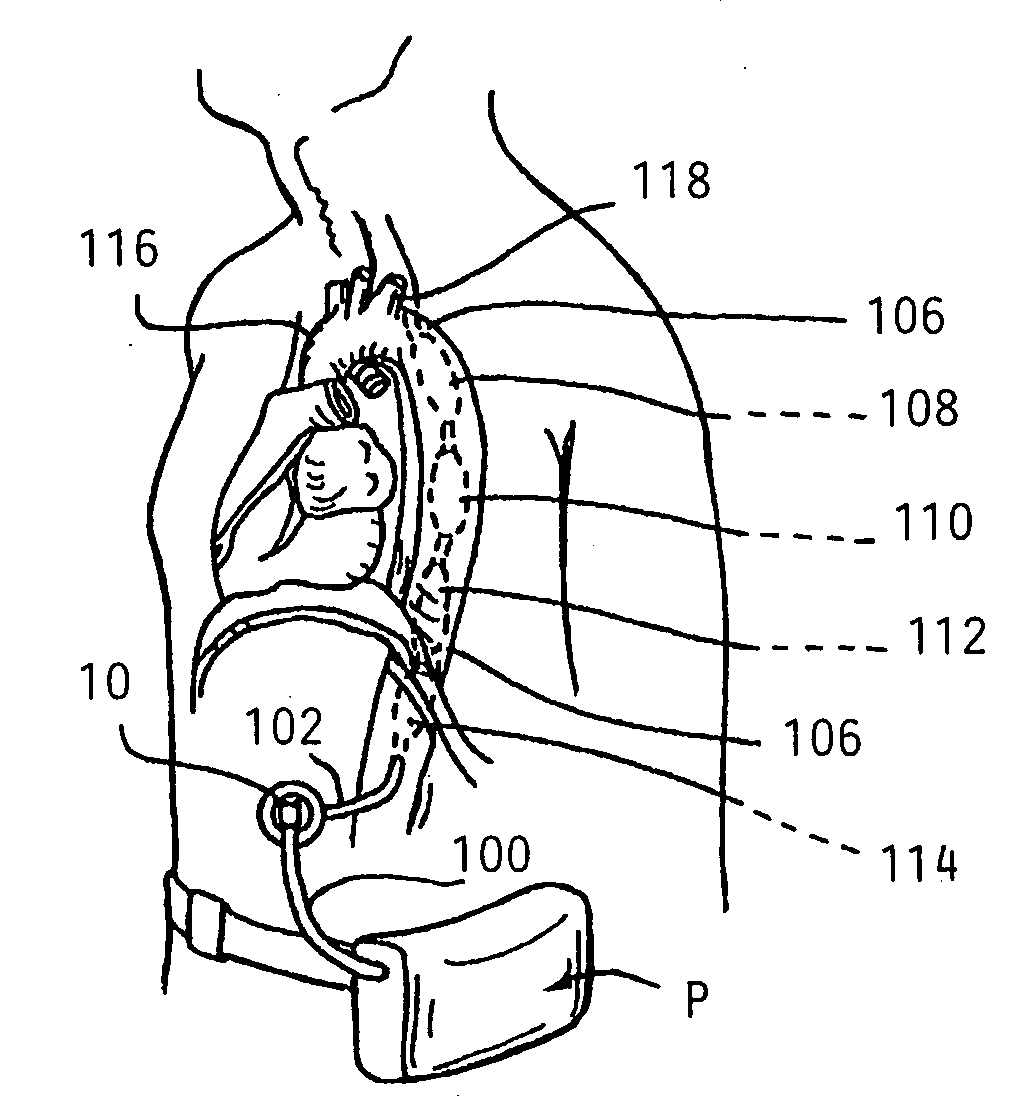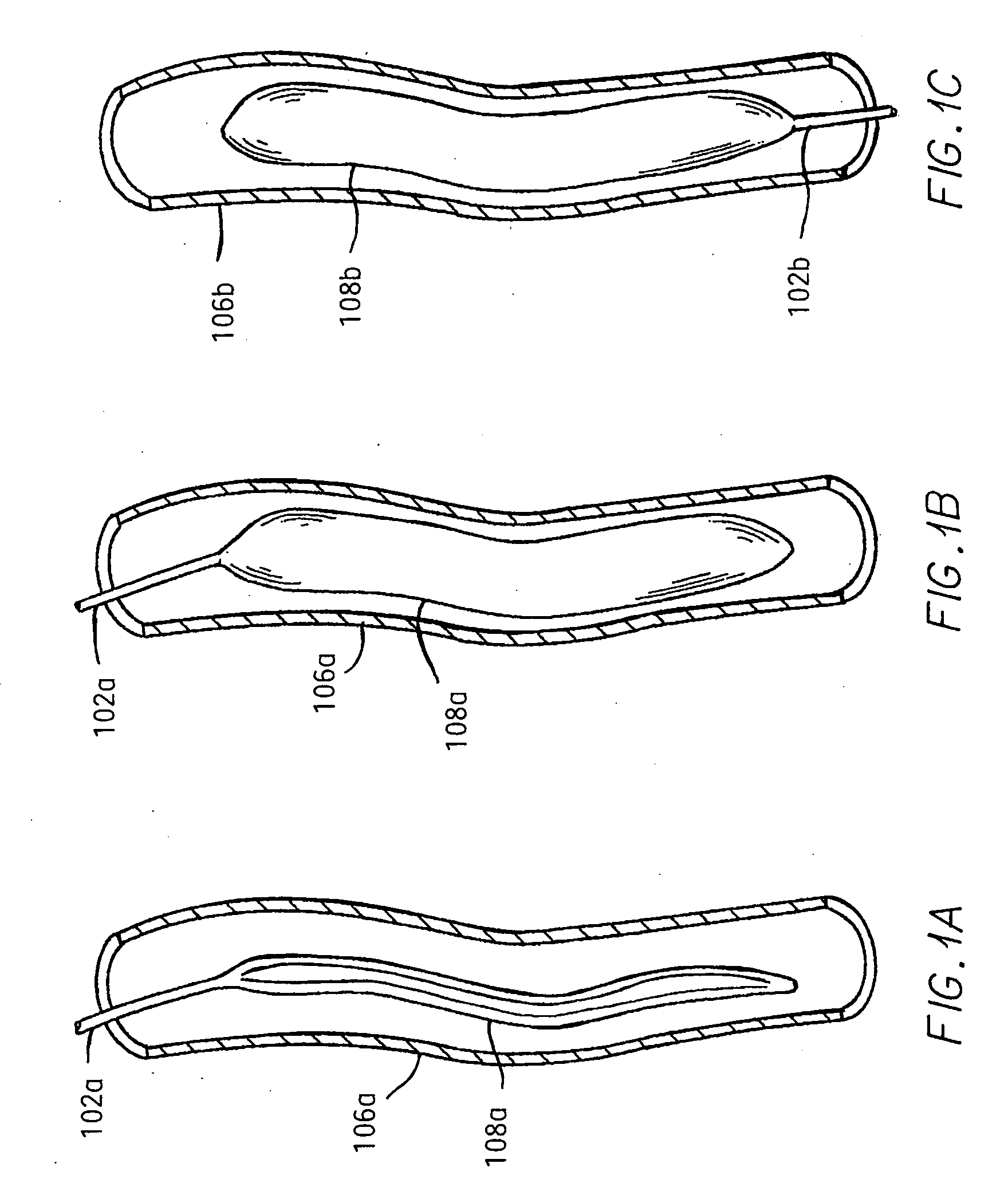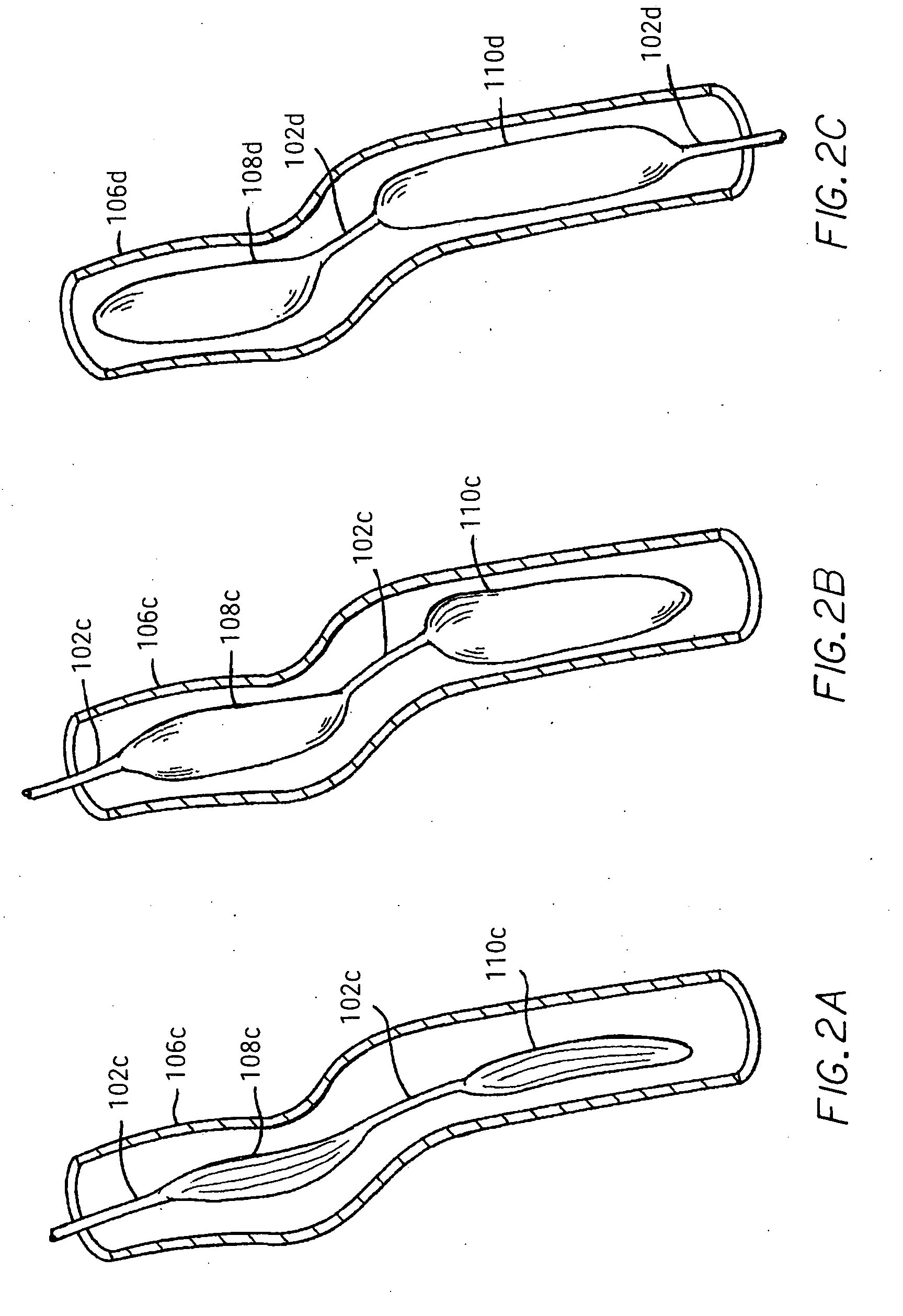Long term ambulatory intro-aortic balloon pump with percutaneous access device
a technology of percutaneous access and aortic valve, which is applied in the field of intraaortic valve pump, can solve the problems of insufficient relative level of cardiac assistance, premature failure, undesirable insertion location, etc., and achieves the effect of reducing the overall diameter of the device, facilitating minimally invasive surgical implantation, and facilitating cardiac function
- Summary
- Abstract
- Description
- Claims
- Application Information
AI Technical Summary
Benefits of technology
Problems solved by technology
Method used
Image
Examples
Embodiment Construction
[0051]Various embodiments are shown throughout the Figures illustrating the present invention, and include common elements in different structural configurations where common elements are designated with a common base numeral and differentiated with a different alphabetic designation for the various embodiments. Descriptions for the base numeral designations are considered to be generic to the different alphabetic extensions added to the alternative embodiments except as specifically noted herein.
[0052]The present invention provides a pumping chamber lying completely within the lumin of the aorta rather than being embedded or implanted in the wall of the aorta. By way of example and not limitation, a surgeon can anastomose a length of vascular graft end-to-side directly to the aorta and use this graft as the aortic cannulation point. The vascular graft can be long enough to reach the subcutaneous skin layer, thereby simplifying exchange of the LTIABP if exchange becomes necessary du...
PUM
 Login to View More
Login to View More Abstract
Description
Claims
Application Information
 Login to View More
Login to View More - R&D
- Intellectual Property
- Life Sciences
- Materials
- Tech Scout
- Unparalleled Data Quality
- Higher Quality Content
- 60% Fewer Hallucinations
Browse by: Latest US Patents, China's latest patents, Technical Efficacy Thesaurus, Application Domain, Technology Topic, Popular Technical Reports.
© 2025 PatSnap. All rights reserved.Legal|Privacy policy|Modern Slavery Act Transparency Statement|Sitemap|About US| Contact US: help@patsnap.com



